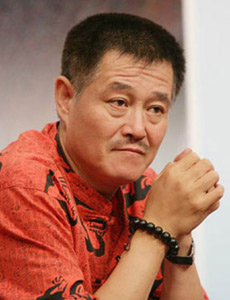Top Biz News
Stars shine brighter with EMBA
By Wang Hongyi (China Daily)
Updated: 2009-11-19 08:10
|
Zhao Benshan is one of a growing number of celebrities who attend business management programs. [Filephoto] |
Along with well-heeled executives, celebrities have also been feeding the coffers of the nation's top business schools, money that may be going to providing greater luxury and gloss rather than business knowledge.
Early this year, famed comedian Zhao Benshan spent 550,000 yuan on the an 18-day China Enterprise CEO course at the Beijing's Cheung Kong Graduate School of Business, arousing great public interest about wealthy people's lives and spending.
Zhao's agent Gao Dakuan explained that the performer just wanted to broaden his professional perspectives to better operate his private business.
Zhao is not the only star pursuing a high-priced elite business education. Famous Chinese anchors Li Xiang, Chen Weihong and Chen Chen are also students at the country's top business schools, which often cost more than 500,000 yuan.
Many students, even EMBA recruiters, see the programs as nothing other than country clubs to meet the social elite and mix in exclusive circles, especially at prestigious universities.
"Sky-high tuition is a barrier to an EMBA, quietly alienating common people, but it does serve to whet the appetite of the rich," said a woman in charge of marketing for an EMBA program at a noted Shanghai university.
"Almost all EMBA students have distinguished career backgrounds. In such a high-class environment, people can build social networks and a mutually beneficial relationships with other schoolmates."
She admits that enlarging their inner circle and expanding social networks are more important to EMBA students than receiving classroom education.
Expensive elite education has been on par with other luxury goods, contributing to continued increases in the country's luxury consumer price index (CPI).
Price gains for business schools, liquor and cigars contributed to this year's 6.3 percent growth in the luxury CPI, even as the overall index dropped 1.7 percent from the last year, according to the 2009 Hurun Luxury Living Index Report released by the Shanghai-based Hurun Research Institute best-known for its annual China Rich List.
Tuition for MBA programs increased an average 9.5 percent, while the cost of attending an Executive MBA program at Beijing's Cheung Kong Graduate School of Business surged 30 percent to almost 530,000 yuan.
"Marketers consciously target a limited number of sales. Control of supply is a considerable part of the luxury business."
Unlike most traditional university programs in which hundreds of students at a time attend a lecture in a massive hall, business education is delivered in small classrooms for 30 to 70 students.














